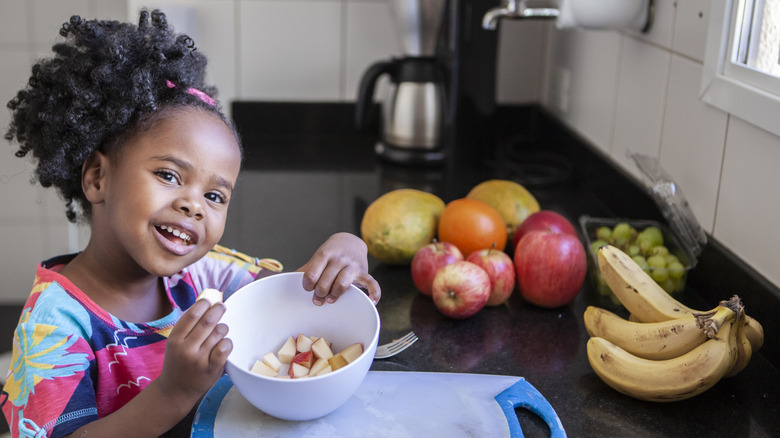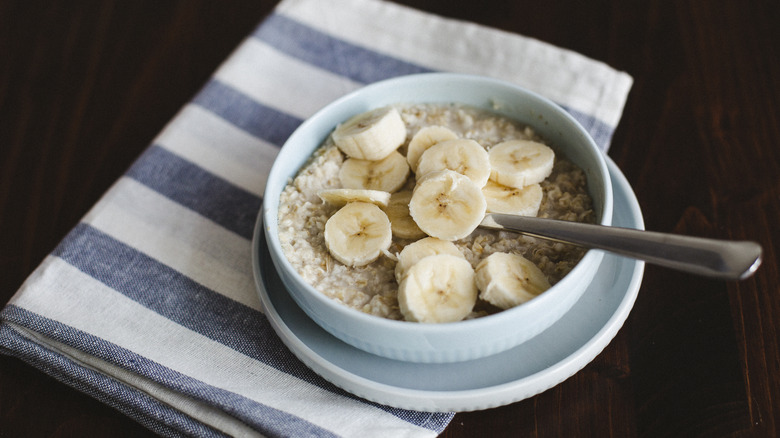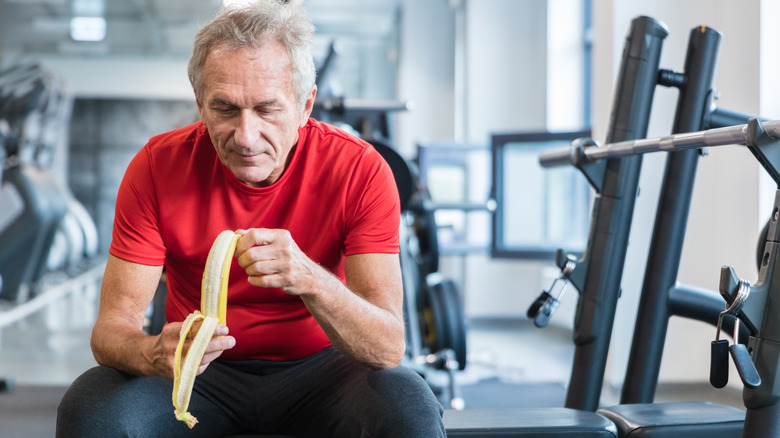The Popular Fruit You Shouldn't Be Eating By Itself
A healthy breakfast provides a key start to your nutritional needs for the day, providing key vitamins, minerals, and fiber for good health. A balanced breakfast helps prevent large fluctuations in your blood sugar, and even having something in your stomach in the morning keeps you from grabbing something unhealthy when hunger pangs strike. Breakfast gives you much-needed glucose for your brain to help with your concentration. If you want to manage your weight and reduce your risk of type 2 diabetes and heart disease, start your day with breakfast.
After a long sleep, your body's been working hard to restore and heal, using stored glycogen to provide the energy it needs. When you wake up, you'll need carbohydrates to help replenish that lost glycogen (via Better Health Channel). Fruits are a good source of these carbohydrates, but many fruits are also high in sugar, which can spike your blood sugar. Thus, although a banana is rich in nutrients, you'll want to pair it with other foods to avoid a mid-morning blood sugar crash (via Healthline).
Pair bananas with protein and fat
A banana might make a quick breakfast as you're running out the door, but to prevent becoming hungry an hour or so later, you'll need to pair your banana with some protein or fat, according to Healthline. For example, you can slice up your banana and add it to some yogurt or nut butter. Your banana will add some sweetness to a protein shake, and you can add some greens, such as spinach, to fill out your nutritional profile. Unsweetened oatmeal makes a great breakfast, but you can sweeten it with a banana and add some nuts and seeds.
With that said, a banana can be great on its own in some cases. The fiber in a banana will fill you up while cooking a heartier breakfast and help you eat less. A single banana can give you just the right amount of energy if you're just about to start your workout, according to the British Heart Foundation.
Bananas are a great addition to your diet
A medium banana has 105 calories, 27 grams of carbohydrates, 3 grams of fiber, and 14 grams of natural sugars. Bananas are a good source of potassium, which is a key electrolyte that helps maintain fluid balance in your body. Potassium also helps muscles like your heart contract. A banana also provides vitamin C to support your immune system and protect your cells from free radicals (via Healthline).
Bananas also have compounds such as phenolics, biogenic amines, and phytosterols to keep your body healthy, according to a 2018 article in Food Quality and Safety. Phenolics in bananas, including flavonoids and anthocyanins, can act as antioxidants. They can also protect against DNA mutations and inhibit the growth of cancer cells. Although people might not eat the peel or the banana pulp, they contain biogenic amines like dopamine and serotonin, which can affect your mood and emotional stability. The phytosterols in the banana peel and pulp can also help lower LDL cholesterol levels.



